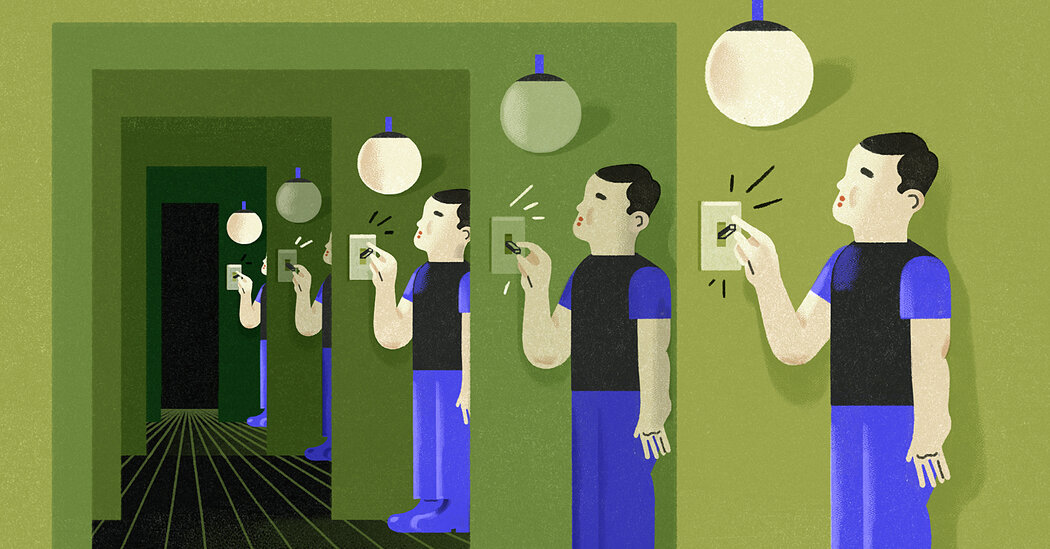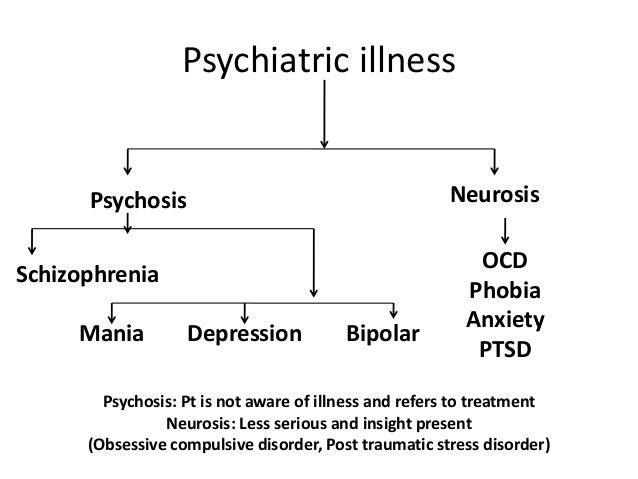Living with a compulsive liar
How to Cope with Someone’s Compulsive Lies
Pathological lying
Pathological lying, also known as mythomania and pseudologia fantastica, is the chronic behavior of compulsive or habitual lying.
Unlike telling the occasional white lie to avoid hurting someone’s feelings or getting in trouble, a pathological liar seems to lie for no apparent reason. This can make it frustrating or hard to know what to do if you believe you’ve met one.
Though pathological lying has been recognized for more than a century, there’s not yet a clear universal definition of the condition.
Some pathological lying may result from a mental condition, such as antisocial personality disorder (sometimes called sociopathy), while others appear to have no medical reason for the behavior.
A pathological liar is someone who lies compulsively. While there appears to be many possible causes for pathological lying, it’s not yet entirely understood why someone would lie this way.
Some lies seem to be told in order to make the pathological liar appear the hero, or to gain acceptance or sympathy, while there’s seemingly nothing to be gained from other lies.
Some evidence from 2007 suggests that issues affecting the central nervous system may predispose someone to pathological lying.
Compulsive lying is also a known trait of some personality disorders, such as antisocial personality disorder. Trauma or head injuries may also play a role in pathological lying, along with an abnormality in hormone-cortisol ratio.
A 2016 study of what happens in the brain when you lie found that the more untruths a person tells, the easier and more frequent lying becomes. The results also indicated that self-interest seems to fuel dishonesty.
Though the study didn’t specifically look at pathological lying, it may give some insight into why pathological liars lie as much and as easily as they do.
The following are some of the scientifically recognized traits and characteristics of pathological liars.
Their lies seem to have no clear benefit
While a person might lie to avoid an uncomfortable situation, such as embarrassment or getting in trouble, a pathological liar tells lies or stories that don’t have an objective benefit.
Friends and family can find this especially frustrating because the person lying doesn’t stand to gain anything from their lies.
The stories they tell are usually dramatic, complicated, and detailed
Pathological liars are great storytellers. Their lies tend to be very detailed and colorful.
Even though obviously over-the-top, the pathological liar may be very convincing.
They usually portray themselves as the hero or victim
Along with being made the hero or victim in their stories, pathological liars tend to tell lies that seem to be geared at gaining admiration, sympathy, or acceptance by others.
They sometimes seem to believe the lies they tell
A pathological liar tells lies and stories that fall somewhere between conscious lying and delusion. They sometimes believe their own lies.
It’s difficult to know how to deal with a pathological liar who may not always be conscious of their lying. Some do it so often that experts believe they may not know the difference between fact and fiction after some time.
Pathological liars also tend to be natural performers. They’re eloquent and know how to engage with others when speaking. They’re creative and original, and quick thinkers who don’t usually show common signs of lying, such as long pauses or avoidance of eye contact.
When asked questions, they may speak a lot without ever being specific or answering the question.
Most people lie at one time or another. Previous research has suggested that we tell an average of 1.65 lies every day. Most of these lies are what are considered “white lies.”
Pathological lies, on the other hand, are told consistently and habitually. They tend to appear pointless and often continuous.
White lies
White lies are occasional and considered:
- small fibs
- harmless
- without malicious intent
- told to spare another’s feelings or avoid getting in trouble
Some examples of white lies include:
- saying you have a headache to get out of attending a meeting
- saying you’ve paid the phone bill when you forgot to pay it
- lying about why you were late for work
Pathological lies
Pathological lies are:
- told frequently and compulsively
- told for no apparent reason or gain
- continuous
- told to make the teller appear heroic or the victim
- not deterred by guilt or risk of getting found out
Examples of pathological lying:
- creating a false history, such as saying they’ve achieved or experienced something they haven’t
- claiming to have a life-threatening illness that they don’t have
- telling lies to impress others, such as saying they’re related to a famous person
Identifying a pathological liar isn’t always easy. While it may be human nature to be suspicious of anything that appears “too good to be true,” not all lies told by pathological liars are over-the-top.
While it may be human nature to be suspicious of anything that appears “too good to be true,” not all lies told by pathological liars are over-the-top.
They also tell “regular” lies that someone without a compulsion to lie might tell.
The following are some signs that may help you identify a pathological liar:
- they often talk about experiences and accomplishments in which they appear heroic
- they’re also the victim in many of their stories, often looking for sympathy
- their stories tend to be elaborate and very detailed
- they respond elaborately and quickly to questions, but the responses are usually vague and don’t provide an answer to the question
- they may have different versions of the same story, which stems from forgetting previous details
Knowing a pathological liar can be deeply frustrating because the lying appears to be pointless.
It can test the trust in any relationship and make it hard to even have a simple conversation with the person.
Here are a few pointers to help you handle a conversation with a pathological liar:
Don’t lose your temper
As frustrating as it may be, it’s important not to let your anger get the better of you when confronting a pathological liar. Be supportive and kind, but firm.
Expect denial
Someone who pathologically lies may have the tendency to first respond with a lie. If you confront them about their lying, chances are that they’ll deny it.
They may become enraged and express shock at the accusation.
Remember that it’s not about you
It’s hard not to take being lied to personally, but pathological lying isn’t about you. The person may be driven by an underlying personality disorder, anxiety, or low self-esteem.
Be supportive
When talking to the person about their lies, remind them that they don’t need to try to impress you. Let them know that you value them for who they really are.
Don’t engage them
When you notice the person lying, don’t engage them. You can question what they’re saying, which may encourage them to stop the lie at that point.
You can also let them know that you don’t want to continue the conversation when they’re being dishonest.
Suggest medical help
Without judgment or shaming, suggest that they consider professional help and let them know your suggestion comes from genuine concern for their well-being.
Be prepared with information about pathological lying, such as a printout of an article or a pamphlet that they can read when they’re ready. Expressing that you’re concerned that their behavior may result from an underlying medical condition may also help.
A pathological liar is an excellent storyteller and performer. They know how to captivate their audience by telling elaborate and fantastic stories while being very animated.
Along with knowing how to weave and express a detailed story, people are also fascinated by what drives a person to lie.
It’s natural to want to know why they’re lying, especially when there doesn’t seem to be an apparent reason for their lies.
Diagnosing a pathological liar can be difficult because of the many possible causes of the behavior. Speaking with the person and conducting a medical history and interview isn’t usually enough to make a diagnosis because of the person’s tendency to lie.
An important part of diagnosing a pathological liar is determining if they recognize that they’re lying or believe the lies they tell.
Some professionals use a polygraph, also known as a lie detector test. The test isn’t to catch them in a lie, but to see how well or often they “beat” the polygraph as this suggests that they believe their lies or have become good at using other measures to convince others of their lies.
Some professionals also interview family members and friends when diagnosing a pathological liar.
Treatment will depend on whether or not the pathological lying is a symptom of an underlying psychiatric condition.
Treatment would include psychotherapy and may also include medication for other issues that might be fueling the behavior, such as drugs used to treat anxiety or depression.
How to empathize and cope with a pathological liar comes down to an understanding of what may be causing this person to lie while being supportive.
It’s likely that the lying is a symptom of another issue that can be treated. Encourage them to get the help they need.
Surviving The Chronic Liar: 5 Things To Do
By Tamara Hill, MS, NCC, CCTP, LPC on July 3, 2019
Do you know someone who lies frequently about any and everything?
Have you caught someone in a few lies and wonder why they continue to engage in the behavior?
If so, you are obviously dealing with a pathological liar.
What most people fail to recognize about pathological liars is that they often lack the ability to empathize with others (walk in your shoes), feel guilty about their behavior, and have trouble controlling their innate impulse to lie. For most of us, it is very difficult to lie with a straight face and quite easy to feel guilty about the lie. But for someone with pathological behaviors, it is rathereasy for them to lie while exhibiting behaviors and emotions that make the lie believable.
For most of us, it is very difficult to lie with a straight face and quite easy to feel guilty about the lie. But for someone with pathological behaviors, it is rathereasy for them to lie while exhibiting behaviors and emotions that make the lie believable.
What is most interesting about pathological liars is that many of them know how to control their emotions in such a way that lying can look like the truth to us.
This article will explore ways to protect yourself from pathological liars and identify their modus operandi.
Pathological lying is very different from telling a “fib” or “white lie.” The lying isinsidious, evil, and sometimes vindictive. Some individuals have developed skill in lying to others and have no fear or regret. Some may even lie to a Judge, police officer, therapist, psychiatrist, family member, spouse, supervisor, etc. with no remorse. They can also present as very calm or charming, provide appropriateeye contact, maintain normal breathing rhythms, bepersonable or friendly, and have calm body language. These individuals certainlyfit the description of a sociopath and can be very dangerous.
These individuals certainlyfit the description of a sociopath and can be very dangerous.
The tragic reality for those who work with, live with, or know a pathological liar is that they are almost always victims. Sometimes you are a part of a lie and may not even know it. Other times, you may know the person is lying, but due to the person being personable and friendly, you may struggle to even consider the fact that maybe you are being lied to.
In other cases, you might also struggle to convince others that a respected or likedperson is in fact lying. As a result of some pathological liars displaying charming, intelligent, and sociable behaviors, most of society is blinded to their obvious social, emotional, and cognitivedeficits.
There are certainly ways to protect yourself from a destructive person who sendswhirlpools of confusion into your life. You should take every lie seriously and strive to remember:
- Avoid engaging the pathological liar: If you sense that you are being lied to, perhaps you are.
 We all have an “internal compass” that signals trouble or peace, truth or fiction. Trust that. There are situations in which you might feel someone is being untrue but later find out they were telling the truth. But in many cases, we, as humans, are good barometers. If you sense that someone is lying to you, don’t make the person feel comfortable by agreeing, nodding, or laughing about it. A blank stare might do the trick in shutting down the lie.
We all have an “internal compass” that signals trouble or peace, truth or fiction. Trust that. There are situations in which you might feel someone is being untrue but later find out they were telling the truth. But in many cases, we, as humans, are good barometers. If you sense that someone is lying to you, don’t make the person feel comfortable by agreeing, nodding, or laughing about it. A blank stare might do the trick in shutting down the lie. - Call them out: Sometimes it’s perfectly fine to point out that something isn’t adding up. You could most certainly put it on yourself by saying “for some reason, I am confused. Can you explain that to me again?”In counseling sessions, the use of confrontationcan be powerful if used appropriately and with tact. Confrontation does not mean creating an argument but creating an acknowledgment that information isn’t adding up. For example, a confrontation might include you stating “…that’s not what I see happening because I spoke with the Principal and he showed me documentation that you skipped school at 2:00pm on Monday.
 ” Confrontation is using facts to undercut the lie.
” Confrontation is using facts to undercut the lie. - Play “stupid”: I use this technique quite a bit in sessions with adolescents and young children. If I want a youth to open up or I’m looking to build rapport I make statements such as “…that’s not what I was told, can you help me understand because I’m a bit confused?” Individuals who tend to lie are usuallyseeking some sort of power over others. If you are able to take a step back and appear unassuming, you can actually become the person “on top” and coax the individual into explaining things so you can evaluate it. You’re not trying to catch the person in a lie per se but to clarify information in a nonconfrontational manner.
- Don’t believe anything until you confirm it:Someone with a track record of lying behaviors should never be believed at face value. The moment you begin to appear as if youbelieve what the pathological liar is saying, they will run with it. Any kind of approval or trust the pathological liar can sense makes them feel powerful and energized to continue the behavior.
 It’s always good, when speaking to someone who frequently lies, to remain neutral, detached, and focused. You should weigh everything you are being told against the facts.
It’s always good, when speaking to someone who frequently lies, to remain neutral, detached, and focused. You should weigh everything you are being told against the facts. - Don’t argue or fight with the pathological liar: It’s not worth your energy to argue with someone who lives in a fantasy or psychologically unstableworld. Most liars lack an identity and struggle with feelings of insecurity and abandonment. Other pathological liars are simply sociopathic and overly confident. Either way, don’t argue or get into a confrontation with the liar because they will use circular arguing, demean you, and possibly create more lies to use in the future (possibly against you). You will never get to the truth, even with the use of intimidation. In some cases, you might get only half of the truth. It’s best to step back, work around the pathological liar, and keeping a safe distance.
Pathological liars are difficult to live with or work with because you can’t determine what is true and what is false. You also cannot determine when the next lie will come. That’s why it’s important to understand their MO. I talk more about that in the video below:
Be mindful ofyour emotions and learn to question how you feel about what you are being told. Questions to ask yourself may include: “Do Ifeel comfortable with what is being said to me?” “Do Ifeel foolish or silly while listening to this story?” “Why amIquestioning the legitimacy of what is being said to me right now?”
The most important goal for anyone who is dealing with a pathological liar is to always remember your dignity and self-respect. A pathological liar typically has little to no empathy and will take you as far as you let them.
To see my series of videos on this topic, visit my youtube page in the description below.
As always, I wish you well
References
Dike, C.
 (2008). Pathological lying: Symptom or disease? The Psychiatric Times. Retrieved June 15, 2014 from,http://www.psychiatrictimes.com/articles/pathological-lying-symptom-or-disease.
(2008). Pathological lying: Symptom or disease? The Psychiatric Times. Retrieved June 15, 2014 from,http://www.psychiatrictimes.com/articles/pathological-lying-symptom-or-disease. Winton, R. (2001). Panel ousts Judge for lying.
Los Angeles Times. Retrieved June 15, 2014 from,http://articles.latimes.com/2001/aug/16/local/me-34920.This article was originally published on 7/18/19, but has been updated to include a video and comprehensive information.
Recognize and neutralize: how to communicate with pathological liars
Probably everyone in life had to deal with people who tell lies. Some of them could even take part in the "Deceiver of the Year" contest, because they lie so professionally that sometimes it is impossible to distinguish truth from fiction, and the meaning and purpose of their lies are not always clear. People who confuse reality with fiction and cannot help but lie are commonly called pathological liars - together with psychologist Tatyana Vlasevskaya, we figure out why they do this and how to respond to such behavior.
Psychotherapists and psychiatrists still argue about whether pathological lying is an independent mental disorder or a symptom of another disease, such as narcissism, sociopathy, or borderline personality disorder. There is an opinion that pathological lies are one of the variants of addiction, like, for example, alcoholism, drug addiction, gambling addiction. Such a person simply cannot lie. For him, lying is a bad habit that he cannot and does not want to get rid of. And habit, as you know, is second nature.
Moreover, it is difficult to recognize a chronic liar at the first meeting. As a rule, rather sociable and charming people have a greater tendency to tell a lie, so the craving for constant lies is revealed over time, when comparing facts and having a lot of communication experience. The problem is that pathological lying leads to a lack of trust and eventually destroys any relationship.
It must be understood that there are two types of liars: pathological and compulsive. Pathological usually lie always and with a specific purpose, and sometimes they themselves believe what they have invented. They are very indignant if they are caught in a lie, but they do not feel shame. Compulsive liars lie because they can't tell the truth for one reason or another, and sometimes they lie for no reason at all. They know very well that they are not trusted, so they often confess to their deeds, but continue to behave the same way, not being able to stop.
Pathological usually lie always and with a specific purpose, and sometimes they themselves believe what they have invented. They are very indignant if they are caught in a lie, but they do not feel shame. Compulsive liars lie because they can't tell the truth for one reason or another, and sometimes they lie for no reason at all. They know very well that they are not trusted, so they often confess to their deeds, but continue to behave the same way, not being able to stop.
Naturally, there are a huge number of psychological problems behind such behavior: the costs of education, various personality disorders (the same narcissism, obsessive-compulsive disorder, depression), addictions (alcoholism, drug addiction, gambling) ( read also : All under control: how to know if you have obsessive-compulsive disorder). It follows from this that not every liar you meet on the path of life is pathological and needs competent therapy from specialists.
Usually pathological liars are quite quirky personalities. Often they lie out of a banal desire to draw attention to their person, to increase their value in the eyes of others. With all this, they are characterized by the role of the victim, because they need sympathy and support. They, as a rule, have low self-esteem, there are various phobias, anxiety, self-doubt.
Often they lie out of a banal desire to draw attention to their person, to increase their value in the eyes of others. With all this, they are characterized by the role of the victim, because they need sympathy and support. They, as a rule, have low self-esteem, there are various phobias, anxiety, self-doubt.
How to deal with a pathological liar? Of course, ideally, if you understand that a person has lied to you more than once, then it is better not to communicate with him or keep communication to a minimum. Especially when there are serious addictions in the anamnesis (besides lies) - you need to stay away from such a person. A separate caste of pathological liars is made up of sociopaths and personalities prone to narcissism, relationships with which will be toxic and difficult for an adequate person.
In all other cases, healthy skepticism and acceptance of this shortcoming in a person helps. In some cases, you can take the side of a liar and even understand what motivated him when he composed another lie - perhaps he simply did not want to upset you or wanted to show himself in a more favorable light.
Compulsive liars already understand that the level of trust in them is reduced, but in some situations they cannot help but lie. Agree that your desire to expose lies and distrust also do not contribute to a harmonious relationship with a person who has such a bad habit.
Of course, living with a person who has a tendency to lie is not easy, but it is possible when you understand what drives him. And it’s not always something bad that drives them - very often both pathological and compulsive liars lie because it seems to them that it will be better that way. That is why this problem does not have a universal solution - everyone who encounters it must decide for himself how he will act and what decision he will make, especially when it comes to a loved one.
Psychologist.
Photo: Getty Images
Marie Claire Editorial
Pathological liars: what makes them lie?
133,507
Man among menKnow thyselfPractices how to
- Photo
- Shutterstock/Fotodom.ru
Will you swear that you will always tell the truth, the whole truth and nothing but the truth? Hardly, like 99.99% of the people in the world. Anyone who claims that he has never lied is clearly disingenuous. However, most can honestly say that they are at least trying not to cheat.
But there is a special category of people for whom lying is a way of life. It is easier for pathological and compulsive liars to make up three boxes than to tell the truth. Why do they do it and how to crack them?
Pseudology fantasy
Pathological lie, mythomania or Pseudologia Fantastica, causes a lot of controversy among psychologists and psychiatrists. Some believe that this is only a symptom of a more complex disorder (for example, borderline personality disorder, sociopathy or narcissism), others are convinced that this is a deviation in itself.
It has been suggested that this is a special form of addiction: a person cheats under the influence of a psychological impulse, like an alcoholic, a smoker or a gambler, in response to specific triggers. However, the fact remains that some people lie all the time.
However, the fact remains that some people lie all the time.
Their deceit can be called chronic, since it is observed throughout life, or habitual in the sense that it becomes second nature.
People of this type always act under the influence of internal motivation, and not external factors. In other words, they lie not so much to avoid the unpleasant consequences of the truth, but for the sake of "sport interest".
Pathological liars are not so easy to recognize, especially on a superficial acquaintance or at the beginning of a relationship. They may seem interesting, intelligent, sociable, charming. Their true face is revealed only with time, and then communication becomes strained. Lying endlessly can destroy friendships, loves, work relationships, and even families.
Pathological and compulsive lying: what is the difference?
Two types of lies have their own characteristics. How do you know who you are dealing with?
How do you know who you are dealing with?
Pathological liars:
-
Lie with a specific purpose,
-
Invent fantastic stories that can endlessly complement with new details,
-
Believe everything that the fields,
-
are indignant when they are suspected in deception,
-
lies to strengthen their authority,
-
do not blush or feel embarrassed.
Compulsive liars:
-
seriously believe that they are obliged to lie: either because they do not know how otherwise, or if it is inconvenient to tell the truth,
-
often lie for no clear reason and without any benefit,
-
compose fables on the go
-
prefer "holy" lies that others are supposed to want to hear,
-
tend to feel distrustful of others,
-
when they are caught, they confess that they have lied, but they continue to fool the people around.

These differences are very conditional, because deceivers easily change masks.
- Photo
- Shutterstock/Fotodom.ru
What caused this behavior?
There is no clear scientific explanation for the tendency to communicate deliberately false information. This behavior is due to many genetic and environmental factors, but this set is unique for everyone. Here are the most common reasons.
1. Personality disorders
As mentioned above, lying at every turn can be a symptom of a mental disorder.
2. Features of the brain
A number of studies point to structural abnormalities in the brains of pathological liars. One such study revealed increased white matter volume in three regions of the prefrontal cortex.
Other authors believe that a persistent tendency to lie is formed as the restraining emotional reaction of the amygdala weakens. Earlier studies found that 40% of pathological liars had damage to the central nervous system caused by epilepsy, head trauma, or dangerous infections.
Earlier studies found that 40% of pathological liars had damage to the central nervous system caused by epilepsy, head trauma, or dangerous infections.
3. The costs of education
In childhood, we all learn what is good and what is bad. At an early age, a person may lie out of fear of punishment or for profit, and later this becomes an unconditional attitude.
4. Chemical addiction
Drug addicts and alcoholics often use cunning to hide their problem and at the same time swindle money: addictions “turn off” conscience.
5. Other psychological problems
A person who lies frequently may suffer from depression, anxiety, or obsessive-compulsive disorder. Such behavior may be associated with fear, guilt or shame, unwillingness to admit their condition. It is important to understand that not every person with such a diagnosis is a pathological deceiver!
- Photo
- Shutterstock/Fotodom.ru
Signs of pathological and compulsive lying
If you suspect that you are regularly fooled, pay attention to the characteristic signs of lying.
1. The stories of liars are absolutely incredible
If you find yourself shaking your head often, refusing to believe the fables, it seems that you have come across just such a person. Someone tells how they dined with Tom Cruise or set a world record for eating sausages? You are not mistaken.
2. There is a desire to get attention
If someone is lying to gain interest and goes out of his way to prove his own worth, you are a pathological liar. They practice two ways of attracting attention: Instead of admitting their mistake or honestly saying that they are in trouble, such people are talking nonsense, just to look sinless.
Make yourself a victim. To enlist the sympathy and support of others, they complain about imaginary misfortunes. Illnesses, death of loved ones, someone's cruelty and other catastrophes in which they allegedly suffered.
Illnesses, death of loved ones, someone's cruelty and other catastrophes in which they allegedly suffered.
3. Liars have low self-esteem
By itself, it does not indicate a pathological or compulsive lie, but in combination with other signs, it completes the portrait of a shameless deceiver. Usually low self-esteem is found in compulsive liars: it hides anxiety and insecurity.
4. They should have the last word
Arguing with a pathological liar is like banging your head against a wall. He will give the most ridiculous arguments until you get tired of arguing, just to get out of the fight as a winner. Compulsive liars are easier: they are embarrassed when they are exposed and do not insist on their own.
5. They are extremely resourceful
They manage to invent plausible versions for all occasions with lightning speed, create suitable lies literally out of thin air and present them in a convincing form.
6. They know how to turn everything upside down
If liars feel that they are close to failure, they immediately back up and change the meaning of what was said. But it is useless to catch them at their word: they will object and say that you misheard or misunderstood.
But it is useless to catch them at their word: they will object and say that you misheard or misunderstood.
7. Their lives are chaotic and full of tragedies
They get out as best they can, trying to seem honest, but sooner or later people realize that something is wrong here. Relationships crumble, another job is lost, friends turn away, but the pathological liar is still rushing about in search of simpletons who can be hung noodles on their ears.
8. They don't know how to keep secrets and love to gossip. Nothing is sacred to them.
- Photo
- Shutterstock/Fotodom.ru
How to behave with them
It would seem that there is nowhere clearer - to stop communicating and delete from life. But it's not always easy, and it's not always necessary. Not all deceivers are notorious crooks.
If you are convinced that you have encountered a narcissist or a sociopath, then there is no question: stay away from him, and do not let your conscience torment you. But if someone close to you has serious psychological problems or addiction, you probably shouldn’t say goodbye to them. What to do?
But if someone close to you has serious psychological problems or addiction, you probably shouldn’t say goodbye to them. What to do?
1. To believe… if necessary
It is more expensive to look for a lie in every word. Yes, a person often lies, but still able to be honest. He may be exaggerating, but he's basically telling the truth. At the very least, try to figure out when to trust him and when not.
Do you remember slippery topics, during the discussion of which you often caught your interlocutor in a lie? Or periods of exacerbation, when the propensity to lie became too obvious?
A healthy skepticism doesn't hurt, but if you're not completely sure that what's been said is a total lie, why not assume you're being told the truth? Of course, this does not apply to important issues: here you need to check everything.
A modicum of trust is needed: when a person knows that he will be accused of deceit anyway, why should he be honest? Those who are trusted are more likely to reveal the truth, especially if the lie is associated with guilt or shame.
2. Understand why they lie
We feel bitter when we are deceived, and this is a natural emotional reaction. Critical thinking can help you deal with it. Think: why does a person lie? What drives them? What is the reason?
If you can figure out the motives, a drop of sympathy will surely appear. Your emotions may not subside immediately, but sooner or later you will calm down and be able to take a sober look at the situation.
3. Accept it as a fact: lies will be repeated more than once
Pathological or compulsive liars do not always control their speech. Therefore, it is wiser to admit that they are like that and you have to live with it somehow. This does not mean forcing yourself to believe tall tales or accepting their behavior as the norm. The main thing is to realize that not every lie is said with malicious intent.
They can't help but lie. At least not now, given certain circumstances. Of course, no one forbids fighting this, but you yourself will not change anything. Try to look at it philosophically and not take it to heart.
Try to look at it philosophically and not take it to heart.
4. Convince them to ask for help
If the interlocutor has a tendency to lie relatively recently, you can guess what the matter is (depression, addiction in the initial stage, childhood psychotrauma) and the person is dear to you, try to persuade him to see a psychotherapist.
People who constantly cheat are not easy. And yet, do not rush to write them down as scoundrels or malicious manipulators. There are many causes for pathological or compulsive lying, and although this habit harms both those who are lied to and those who lie, it is treatable.
Daniel Levitin "Guide to Lies"
This book will help you recognize lies and process any information critically. From it you will learn how to critically evaluate news, advertising, reports; it is easy to be persuasive by telling stories that subtly deviate from the facts - and how to recognize such stories; work with graphs and recognize data manipulation using visual means; determine who is behind the expertise, words, website, information.














